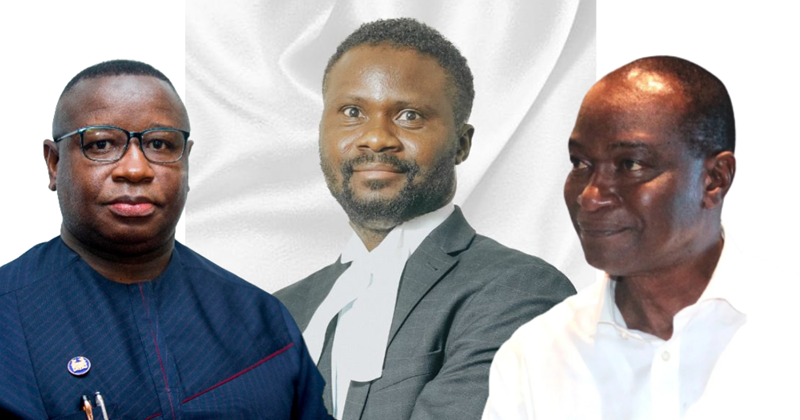Constitutional Lawyer Augustine Sorie-Sengbe Marah expressed strong skepticism regarding the effectiveness of the Tripartite Committee in addressing Sierra Leone’s political crisis. Marah suggested that comparing the committee’s potential impact to that of the historic Lomé Peace Agreement is unrealistic and misguided.
The Lomé Peace Agreement, signed on July 7, 1999, marked a significant turning point in Sierra Leone’s brutal civil war, which had ravaged the country for nearly a decade. The agreement, negotiated in Lomé, Togo, was endorsed by President Ahmed Tejan Kabbah and Revolutionary United Front (RUF) leader Foday Sankoh. It included provisions granting Sankoh a position in the transitional government and amnesty for all combatants.
Fast forward to 2023, the Tripartite Committee, comprising members from the ruling Sierra Leone People’s Party (SLPP), the opposition All People’s Congress (APC), and the international community, was established to review the country’s electoral processes. The committee’s mandate included examining electoral laws, systems, and practices to recommend measures to prevent future election rigging.
However, on Friday the opposition All Peoples Congress (APC) suspended its participation in the Tripartite Committee after the Electoral Commission For Sierra Leone (ECSL) refused to release vital data and information needed by the committee to be able to examine the final outcome of the June 24th, 2023 elections, including the 60% announced results.
Lawyer Marah noted that the SLPP entered the committee’s proceedings with a firm stance against releasing disaggregated data from the June 2023 multi-tier elections. In contrast, the APC’s primary objective was to obtain the Results Reconciliation Forms (RRFs) from all polling stations. According to Marah, the process began and ended with both parties entrenched in their positions, leading to a deadlock.
Marah criticized the outcome, suggesting that the parties involved merely exhausted the committee’s resources without achieving substantial progress. He emphasized that true progress in Sierra Leone requires patriotism, political honesty, and placing the country’s interests above party loyalty.
Marah’s remarks highlight the ongoing challenges in Sierra Leone’s political landscape, underscoring the need for genuine commitment to national unity and electoral integrity.












Marah, is a complete mad Man known for a complete malfunction behavior in articulating national interest so we are never distracted by his compound behavior
Is now mara saying a meaningful words,this a kind of world we the patriotic citizens want to hear
PLEASE APC AND SLPP,LET OUR COUNTRY (MAMA SIERRA LEONE) ABOVE ALL ELSE ( POLITICAL PARTIES)
THAT’S MY HUMBLE SUBMISSION.